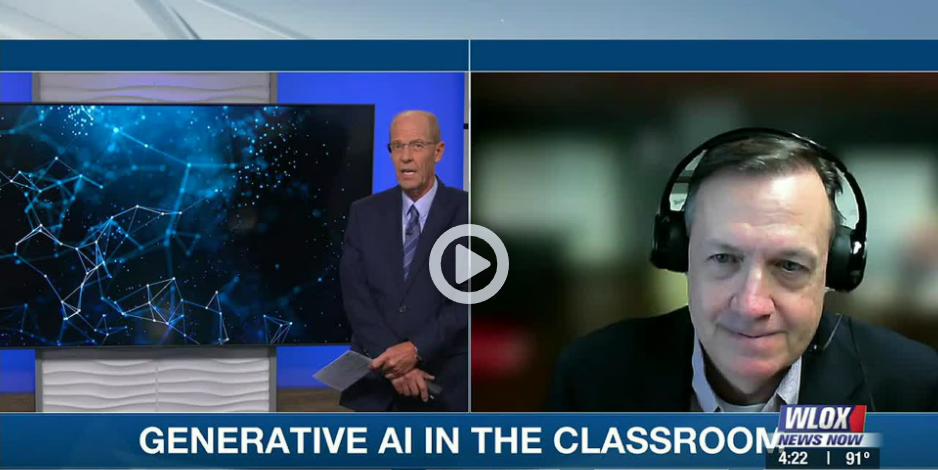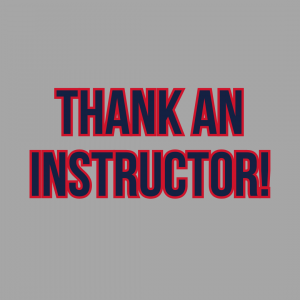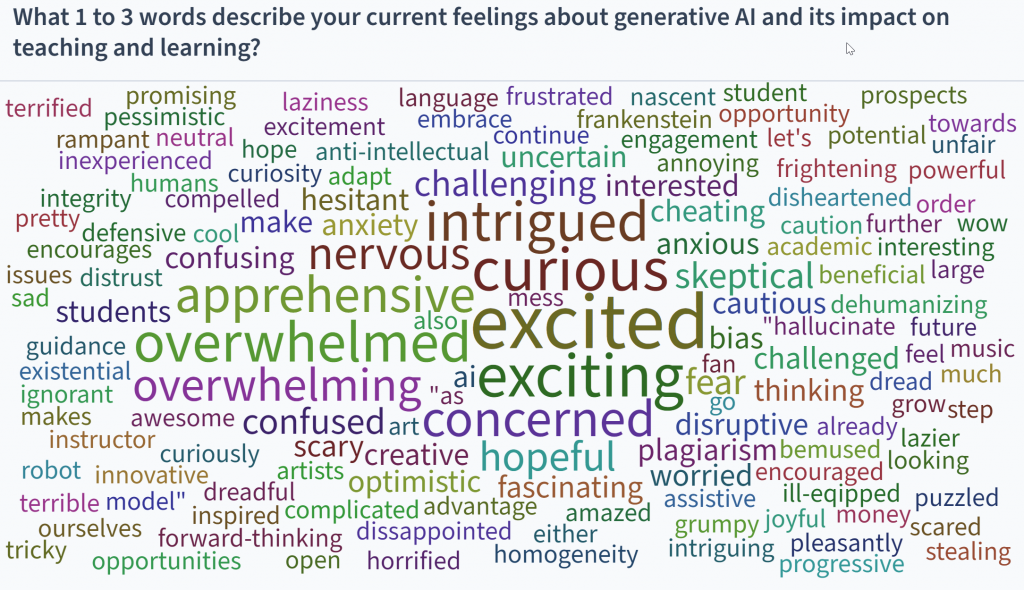Generative AI technologies like ChatGPT and Midjourney are posing new challenges (and maybe opportunities) for higher education this fall. The University of Mississippi is ahead of that curve thanks to pre-ChatGPT explorations of AI technologies by faculty in Writing & Rhetoric and elsewhere. As a result, CETL staff have useful things to say about teaching with and without AI, and that’s the focus of this month’s CETL news roundup.
Just this week, Robert Cummings, executive director of academic innovation, was interviewed by Biloxi, Mississippi, television station WLOX about AI’s impact on higher education this fall. You can watch his four-minute interview here.
Back in July, CETL visiting associate director Derek Bruff was interviewed about teaching and AI, as well. Derek was featured in Jeff Young’s EdSurge piece “Instructors Rush to Do ‘Assignment Makeovers’ to Respond to ChatGPT” about ways faculty are updating assignments for the current AI landscape. Derek was also interviewed by Lauren Coffee for her Inside Higher Ed report “Professors Craft Courses on ChatGPT with ChatGPT,” which looked at new courses on the books about generative AI this fall.
More recently, Derek appeared on the popular Teaching in Higher Ed podcast hosted by Bonni Stachowiak in Episode 481, “Assignment Makeovers in the AI Age.” Bonni has been producing her podcast weekly for almost ten years, and it’s a fantastic resource for the higher education community. If you’d like to listen to it with colleagues, you might try CETL’s new Podcasts & Puzzles get-togethers!



